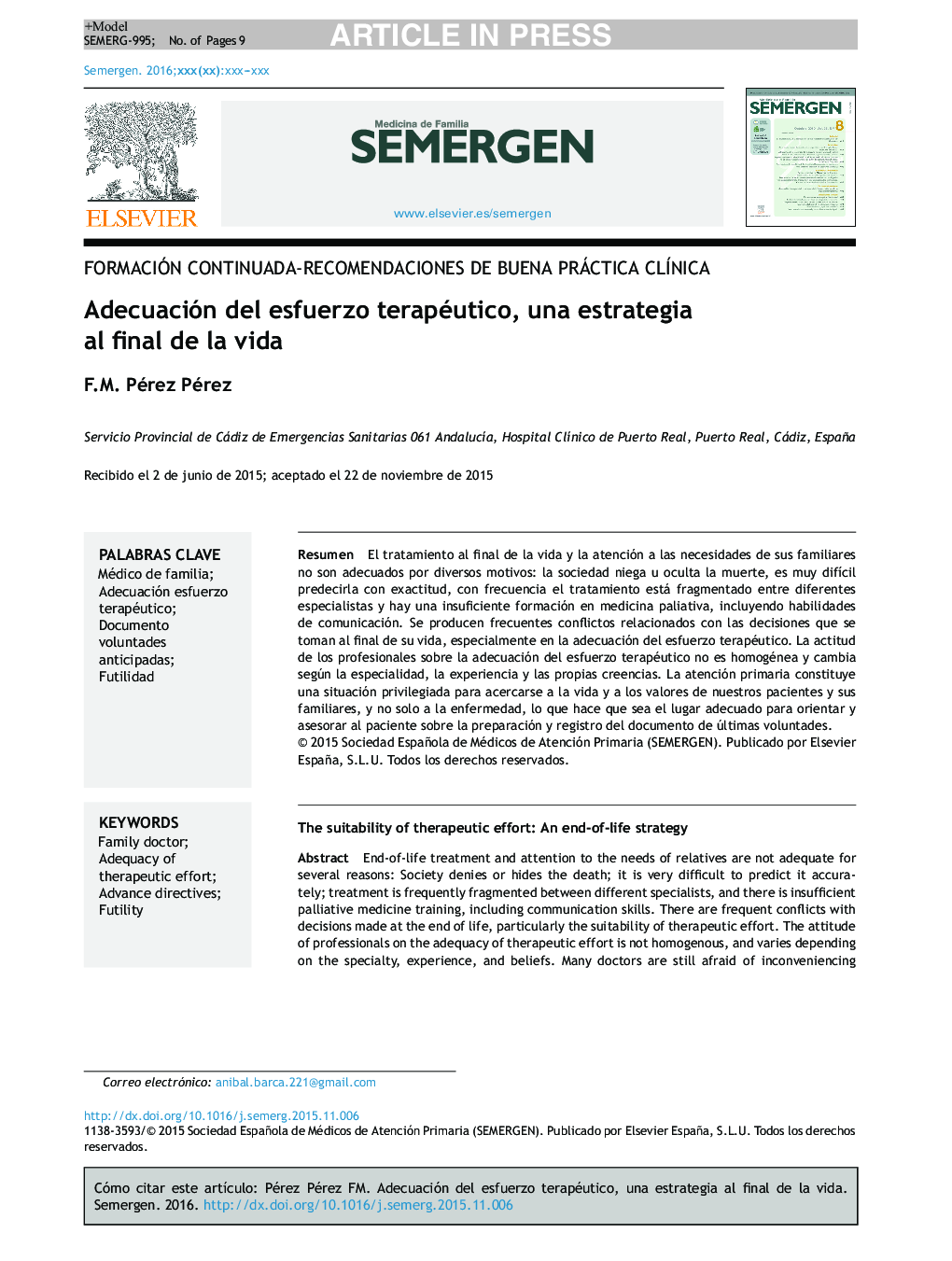| Article ID | Journal | Published Year | Pages | File Type |
|---|---|---|---|---|
| 5684433 | SEMERGEN - Medicina de Familia | 2016 | 9 Pages |
Abstract
End-of-life treatment and attention to the needs of relatives are not adequate for several reasons: Society denies or hides the death; it is very difficult to predict it accurately; treatment is frequently fragmented between different specialists, and there is insufficient palliative medicine training, including communication skills. There are frequent conflicts with decisions made at the end of life, particularly the suitability of therapeutic effort. The attitude of professionals on the adequacy of therapeutic effort is not homogenous, and varies depending on the specialty, experience, and beliefs. Many doctors are still afraid of inconveniencing patients. Primary care is in a privileged position to approach the life and values of our patients and their families, and not just the disease, which makes it the right place to guide and advise the patient on the preparation and registration of living wills.
Related Topics
Health Sciences
Medicine and Dentistry
Medicine and Dentistry (General)
Authors
F.M. Pérez Pérez,
